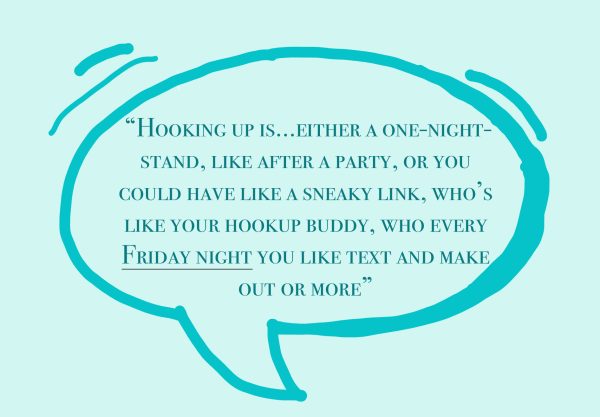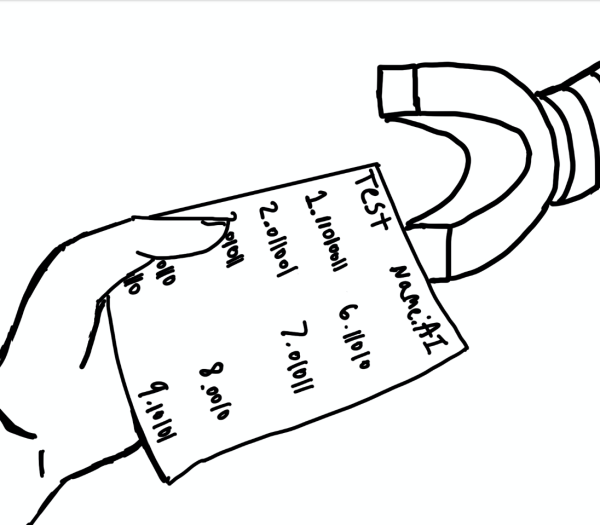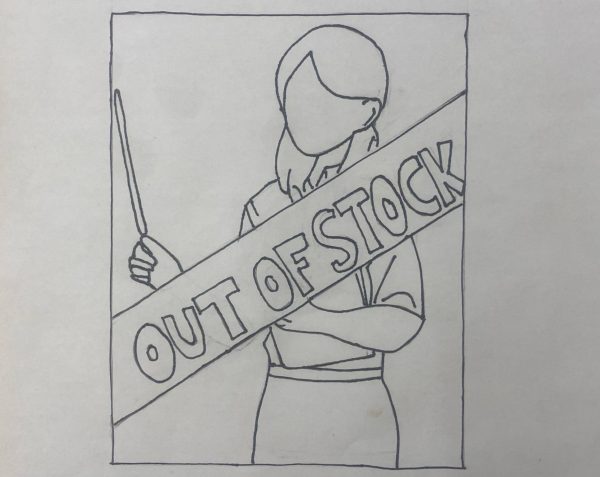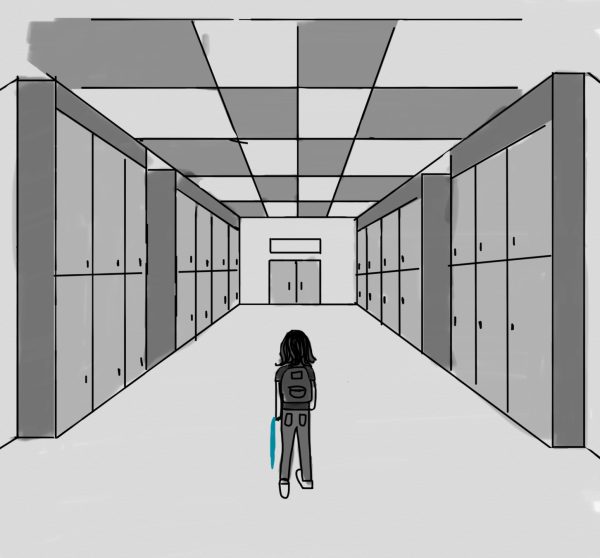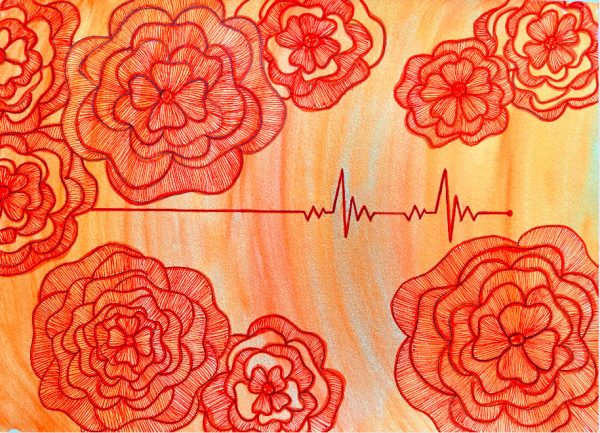Considering a tattoo?
The possible implications of body art in the professional industry
December 14, 2022
“Tattoos are becoming prevalent [in workplaces] … A lot of companies are starting to, or [have] already [realized] that diversity and inclusion are meant to be broad — it is not just about race or gender, it is about [welcoming] people from all walks of life,” Phillip Huth, Komodo Health’s vice president of sales, said.
After a couple hundred dollars and a few long hours of discomfort, a body is permanently marked with a tattoo. People frequently go through this process because tattoos can tell a story.

“My third tattoo has a lot of meaning. Spelled out [the tattoo] is ‘;IGY6’ and [the teal] semicolon is for mental health. Teal blue [represents] mental health for veterans. And the ‘IGY6’ [stands for] ‘I’ve got your six,’ which in military terminology means ‘I have your back.’ … I got that after one of my friends came home from Afghanistan and thought about taking his life. Now that tattoo means a lot to me and other veterans,” Huth said.
While tattoos might be meaningful, they are often negatively perceived in different environments. Not everyone appreciates this art in the professional field. Redwood parent Seth Steinberg, a sole proprietor at his own law practice, understands the notion that tattoos can contribute to an unproductive work environment.
“In a professional environment, when you see a lot of [tattoos], it can be distracting — it doesn’t matter if you find them appealing or not — [the tattoos] take away from doing business,” Steinberg said. “Traditionally, more aggressive [tattoos can] indicate that an employee might not take being a professional seriously.”
Steinberg also recognizes that the acceptance of tattoos varies among different religions and ethnicities.
“Traditionally, [tattoos] were not seen as something favorable [in certain religions]. In Jewish traditions once you scar your body [with tattoos], it changes where you go in the afterlife or how you’re seen at death,” Steinberg said.
Similar to Judaism, Christianity and Islam also view tattoos with hostility, believing they are sinful to the body. However, Huth observes tattoos differently, focusing on the meaning the art provides rather than society’s perceptions.


“I am married to a Native American woman, so that affects my outlook on body ink. But, I think there is something tribal about [tattoos]. The art on my body tells a story about where I’ve been and who I am,” Huth said.
Regardless of different ethnicities’ and religions’ thoughts on tattoos, people at large still believe tattoos carry a stigma in the workplace, even as they become more popular. According to a report by a management software program, TeamStage, 40 percent of employees in the U.S. workforce have tattoos, and about 76 percent of people think visible tattoos can hurt an applicant’s chance in an interview. Similarly, Huth believes tattoos can be used to invalidate employees.
“If [employees] are performing and doing well, nobody will question their tattoos. If [employees] do not fit into [the company’s] culture, then the tattoo becomes an easy excuse to question that person,” Huth said. “I’ve always said, ‘Rules are for people they do not like,’ so the company will break rules if they like you: [businesses] will let you get away with all of the tattoos you want. If the company doesn’t want you around, they will find a reason to get rid of you, and … tattoos quickly become an excuse to look into [employees] further.”
Former Chief Executive Officer of DNAtrix, a biotech company working to advance virus-driven immunotherapies for cancer treatment, Jeff Knapp reflects on rare job applicant interviews with tattooed candidates.
“If a [prospective employee] has excessive visible tattoos, I probably wouldn’t hire them. I [don’t] personally care, but the people they are going to interact with — the public, investors and medical physicians — do not largely accept tattoos,” Knapp said. “[However], I would never say something to someone unless I was surprised and [the tattoos] were inappropriate [for] the setting we were in.”

Knapp characterizes his industry as “fairly conservative” and because of this, he does not often see tattoos on display in job interviews since current employees would not recommend further advancement in the hiring process.
“At my level, people [with visible tattoos] barely get to me for face-to-face interviews because … the [interview] system won’t allow it,” Knapp said.
Hilary Johnston, a senior at Redwood, got her first tattoo shortly after her 18th birthday and has not noticed a difference in the way people perceive her. However, the tattoo is located on the side of her ribs, meaning the public rarely sees it. Although some workplaces do not permit tattoos, Johnston is not concerned with her body art affecting prospective employers.
“I don’t want to work in a place that wouldn’t hire me because of a tattoo [as] that is not the kind of [work] environment I want,” Johnston said. “Also, unless I lift up my shirt, [employers and colleagues] won’t be able to see [my tattoo].”

 However, she believes stereotypes around tattoos will decrease as they become more common. According to a December Bark survey, 46 percent of Redwood students want a tattoo when they are older. Additionally, TeamStage reported that over 90 percent of employers believe work environments are less formal regarding tattoos compared to a decade ago. Due to the large number of young people receiving tattoos and a less traditional work environment, tattoos may become more prevalent as society progresses.
However, she believes stereotypes around tattoos will decrease as they become more common. According to a December Bark survey, 46 percent of Redwood students want a tattoo when they are older. Additionally, TeamStage reported that over 90 percent of employers believe work environments are less formal regarding tattoos compared to a decade ago. Due to the large number of young people receiving tattoos and a less traditional work environment, tattoos may become more prevalent as society progresses.
If you don’t like my tattoos, that is your problem.
— Phillip Huth
“[Tattoos will become more popular] because everybody has a story to tell, and a lot of people want to tell their story, [and] they don’t have to do it verbally — they can express themselves in a thousand ways. Your body can be [your] canvas,” Huth said.
Huth also holds that as workplaces become more accepting of different values and expressions, people will have more freedom with tattoos. Huth describes how he has spread a message and shared his story through his own body art, and would never think to change his decision.
“The art on my body tells a story about where I’ve been and who I am, and I am okay with putting that out to the world,” Huth said. “If you don’t like my tattoos, that is your problem.”










